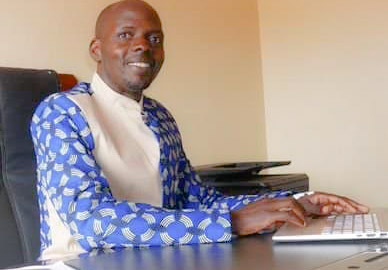News
Gender-based Violence (GBV) survivors to get a shelter in Ndejje

HOCW Cordinator Bolingo
To see longer-term changes in attitudes towards gender norms, power relationships and gender-based violence, Hope of Children and Women Victims of Violence (HOCW) has offered to construct a home to host victims of gender-based violence for Ndejje community.
The essence of the safe house or shelter as other people call it, is to accommodate gender based violence (GVB) victims and equip them with skills that can better their lives in the future.
During a conference held at Aidan College Ndejje on August 30, 2023, the Director HOCW, Bolingo Ntahira said that the GBV ‘safe house’ construction project will aim at generating longer-term attitudinal and behavior changes relating to gender roles, norms, and gender-based violence.
“The project will also ensure that survivors of GBV and those at risk have access to survivor-centered and timely case management services with satisfaction, as well as linking survivors to multi-sectoral support,” he said
According to Hindu Mutebi the Program Cordinator HOCW, during the COVID-19 lockdown, cases of GBV increased in families.
“HOCW as an organization has tried to help our community and we shall ensure that those that are suffering silently and openly are helped. We take them to the safe house and train them as well counseling them so that they can become independent,” she noted
According to a survey conducted by Uganda Refugee Response Plan (RRP) 2022- 2023, GBV dashboard quarter 1, the main types of GBV disclosed by survivors include psychosocial/ emotional abuse (32%), physical assault (24%), and denial of resources (24%).
“Forced marriage/ child marriage remains a concern particularly among the South Sudanese population. In addition, by March, a cumulative number of 73,012 persons we serve had been reached with GBV awareness raising and prevention activities. This represents 11% of the annual target (640,000),” says the RRP report.
It adds: “The main GBV contributing factors are, reduction in cash for food and land for farming exposes women and girls to risk of exploitation and abuse, harmful cultural norms within the refugee communities and patriarchal behaviors that give men power over women, increased child neglect and abandonment by parents who go to the host community in search of casual work or else where, increase in alcoholism and drug abuse, GBV risks among young children and a spike in cases of teenage pregnancies resulting into family conflicts, economic hardship in refugee settlements and in Kampala among urban refugees all contribute to the GBV incidents.”
Comments


















